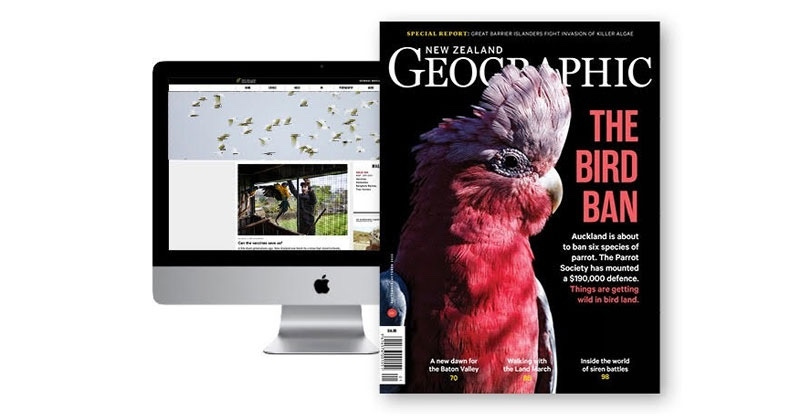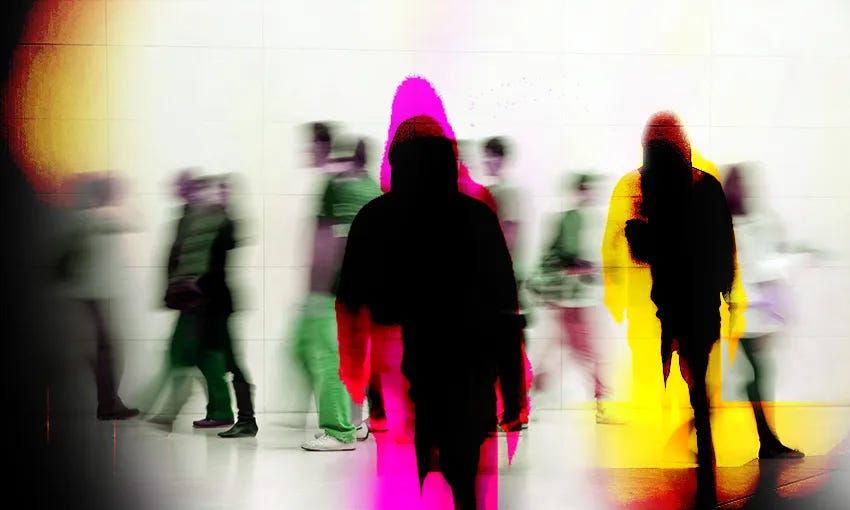Goodbye traffic lights? Hello…?
Cabinet will meet today to decide the next phase of our Covid response. Reports suggest it could be the end of the traffic light system and mask mandates.
Mōrena and welcome to The Bulletin for Monday, September 12, by Anna Rawhiti-Connell. Presented in partnership with Z Energy.
In today’s edition: public holiday being considered to mark the Queen’s death; what supply and demand factors could mean for house prices; are people actually quiet quitting; but first, decision expected today on next phase of Covid management.
Possibly the last time this photo of traffic lights gets used in The Bulletin (Image: Getty)
Hard stop on legal instrument which allows government to exercise special powers next Wednesday
Introduced on December 3, 2021, the day billed as “freedom day” by some desperate Aucklanders, the traffic light system may have run its course. Cabinet will meet today to decide on the next phase of our Covid response. As reports over the last few days have suggested, that could well mean throwing the whole tricoloured system out. There were reports at the beginning of the month that the government was consulting on removing mask mandates from all but high-risk health settings. The main legal instrument which allows the government and officials to exercise special powers during our Covid response, the Epidemic Preparedness (Covid-19) Notice 2020, will expire next Wednesday if cabinet decides not to renew it.
Orange, amber…yellow??
Unlike the alert system with its clear instructions, ideal for a population navigating their first pandemic, the traffic light system was conceived in blurrier, less cohesive times when provision was required for vaccine mandates. It was not beloved from the get-go. Law professors Andrew Geddis and Dean Knight referred to the rushing through of the legislation that enabled it as “a constitutional disgrace”. Toby Manhire was righteously and tangentially outraged to discover that the “orange” and “amber” names we, the people, ascribe to the middle light are not in fact not what our transport agency calls the colour. Whatever it's actually called, it’s been orange to most of us and we’ve spent winter and another wave of omicron in it, since April 13 to be precise.
Could it be green?
We’ve never even been to green. Cabinet may yet decide to retain the system and move the country to the green setting but as with all previous decisions about levels and alerts, the decision is not made until it’s made. Michael Baker has questioned whether the traffic light system was fit for purpose for a while and now says it’s outlived its usefulness. Baker would like the government to put systems in place to make sure we can respond in the event of the next uptick of cases. Case numbers dropped to under 1,000 yesterday for the first time since February but as I’m in a reflective mood, we’re still talking case numbers that would’ve freaked us the hell out not so long ago.
Mask compliance dwindling
Ultimately, things have changed for most people since the days of grinding one’s teeth waiting for vaccination numbers to be updated. Many New Zealanders have had Covid now and as spring approaches, compliance with mask mandates is dwindling, though still recommended by experts. Stuff’s Kelly Dennett speaks to people who are worried about being left behind as others want to move on. BusinessDesk’s Patrick Smellie writes (paywalled) that “while health agencies may determine when pandemics are declared, it is politicians and the people they govern who decide when they end. The end of a pandemic is as much a political decision as a health one.” Smellie of course notes that the pandemic is not over, but we’ll get an indication of what the politicians think about the future course of action today.
It’s one thing to read the headlines, another thing to understand the changing shape of Aotearoa’s environment and society.
New Zealand Geographic has made a name for itself with insightful and engaging long-form features—like why Matariki is the best thing to happen to our environmental conscience in years, why we’re still burning coal and why it’s quite difficult to find manta rays, despite them being six metres across. The consistently brilliant photography and premium production values have found a place in the hearts of hundreds of thousands of well-educated, environmentally conscious and adventurous Kiwi readers. New Zealand Geographic has been named Magazine of the Year six times in the past seven years and described by judges as “a taonga”. If you’re curious about our country, sign up for a subscription, or give a gift to family and friends that arrives six times a year (sponsored).
Cabinet to discuss public holiday to mark Queen’s death
Australian prime minister Anthony Albanese announced yesterday that Australians will get a public holiday on September 22 as a national day of mourning to mark the Queen’s death. In the United Kingdom September 19, the day of the Queen’s funeral, will be a bank holiday. Here in New Zealand, cabinet will discuss whether a public holiday will be declared here and consider options for a national memorial service today. As the Herald’s Claire Trevett reports, cabinet will consider any approaches the government may have had from employers, including retailers, who might face extra costs. In Edinburgh, the Queen’s funeral cortege has arrived at the Palace of Holyroodhouse. Thousands of people have lined the streets. Here’s an outline of what will happen over the next week in the lead-up to the Queen’s funeral.
What demand and supply factors might mean for house prices
In the latest episode of When the Facts Change, Bernard Hickey dives deep into the demand and supply factors behind our endemic housing shortages with Kiwibank economist Jeremy Couchman, including what they might mean for house prices.
September is birthday month for The Spinoff. We’ve come a long way since 2014 and that is in no small part thanks to our members.
Their generous support underpins all our work and has meant we are able to cover more areas of life in Aotearoa, to tackle more stories about our people and issues impacting our communities. From our ongoing coverage of inequality and the cost-of-living crisis, to political reporting and our focus on te ao Māori, it’s important mahi and we can’t do it without you.
Let’s keep a good thing going - tautoko mai, donate today.
Click and collect
What we know about the Kaikōura boating tragedy to date.
Are the new NCEA literacy and numeracy tests too hard? Stuff has a couple of samples for you to take yourself.
Waka Kotahi in the early stages of considering digital driver’s licence.
Grocery prices not expected to ease anytime soon according to new report.
James Shaw re-elected as Green party co-leader.
Got some feedback about The Bulletin, or anything in the news? Get in touch with me at thebulletin@thespinoff.co.nz.
If you liked what you read today, share The Bulletin with friends, family and colleagues.
Alex Casey recounts being confronted by a flasher and talks to other women who’ve been in the same situation; Graeme Edgeler explains what you should know about STV when it comes time to fill out your voting forms; Chris Schulz talks to Marlon Williams about his latest album and his new, poppier direction; Morgan Godfery pays tribute to Queen Elizabeth II, “an ariki of the highest order”; and Emily Simpson talks to Emily Perkins about where she’s been and what her new ATC play is all about.
All Blacks sponsor on trial in criminal case in Paris
A good pick-up from Trevor McKewen of BusinessDesk late last week here (paywalled). Bernard Laporte and Mohed Altrad were indicted for influence peddling and illegal taking of interests in January in France and their trial began at the Paris criminal court last week. Altrad owns the construction conglomerate of the same name that signed on to become the jersey naming rights sponsors for the All Blacks, Black Ferns, Māori All Blacks, All Blacks XV & All Blacks U20's in August 2021. McKewen writes that the case will have New Zealand Rugby (NZR) “squirming with embarrassment, if not ducking for cover”. Just before the Altrad sponsorship was announced, NZR announced a sponsorship with INEOS, a petrochemical company which prompted former All Blacks captain Chris Laidlaw and others to sign an open letter to NZR decrying the deal.
Quiet quitting doesn’t exist
An interesting read from Hayden Donnell this morning on Webworm. We’ve all heard and seen the headlines about “quiet quitting”, the name given to the phenomenon of “just doing your job and no more”. I included a story about it in The Bulletin a couple of months ago but did suggest at the time that it didn't sound like a new idea that deserved a whole new name. Donnell asks where the evidence is to suggest masses of younger people are “quitting quietly”. He does note there is some evidence underpinning this supposed trend but it crosses over with the Great Resignation and anti-work movements, which have a far firmer evidential basis. Ultimately it’s a good starter for discussing the reporting on Gen Z by their elders and the speed at which viral social media posts make the leap into mainstream media.











